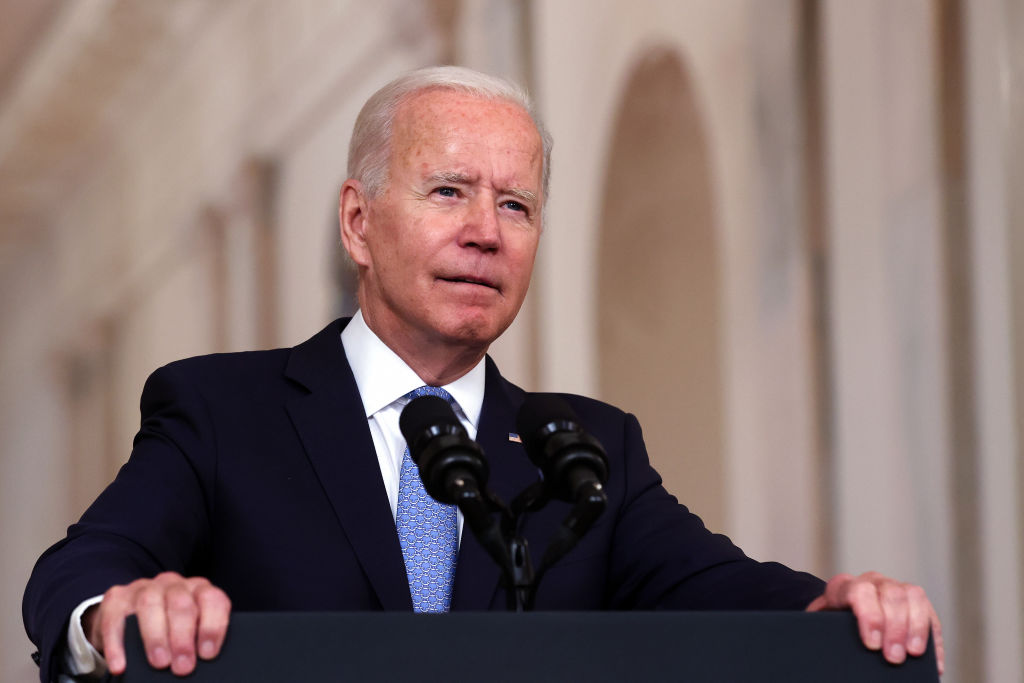September 2, 2021
Afghanistan, Sep 2021
NPR/PBS NewsHour/Marist National Poll
Biden’s Awful August: Approval Sinks on Afghan Pullout… Large Majority Call Afghan War a “Failure”
President Joe Biden’s approval rating has dropped to a new low (43%), while majorities of Americans disapprove of his handling of foreign policy (56%) and of the U.S. withdrawal from Afghanistan (61%). Americans are split about what should have happened, but a large majority (71%) label the U.S. role in Afghanistan a “failure.”
Biden’s approval rating (43%) dropped six percentage points from our August poll (49%), driven by softening support among Democrats (down five points) and independents (down ten points).
Americans who strongly disapprove of Biden’s performance jumped from 30% in August to 41% in this poll.
There is a partisan divide in reaction to Biden’s handling of the withdrawal from Afghanistan. Most Republicans (94%) and independents (71%) disapprove, while about a quarter (26%) of Democrats say the same.
71% of Americans say the U.S. role in Afghanistan was a “failure” including majorities of Democrats (66%), Republicans (73%), and independents (75%).
A majority of Americans (61%) say Afghanistan “must determine its future without U.S. involvement,” while 29% believe the U.S. “has a duty” to stay involved.
Looking ahead to what may be the next big Afghanistan story, an unprecedented proportion of Americans (73%) approve of allowing Afghan refugees to resettle in this country. This includes most Democrats (86%) and independents (78%), and a plurality of Republicans (49%).
“Although most Americans do not place the blame for the failed policy in Afghanistan on President Biden, many think he has mishandled the withdrawal of U.S. troops,” says Lee M. Miringoff, director of the Marist Poll. “The end of this chapter of American involvement in Afghanistan has taken a significant toll on Biden’s standing with Americans.”
When Americans were asked how the U.S. should have proceeded in Afghanistan, opinions are split. Nearly even percentages say all troops should have been withdrawn (37%) or some should have been withdrawn and some left behind (38%). Smaller proportions say no troops should have been withdrawn (10%) or more troops should have been sent (5%).
Placing Presidential responsibility for the U.S. shortcomings in Afghanistan is largely partisan. Overall, Americans rank George W. Bush (36%), Joe Biden (21%), Barack Obama (15%), and Donald Trump (12%) as being most responsible. Democrats, however, list Republicans Bush (53%) and Trump (22%) as their top two. Republicans list Democrats Biden (38%) and Obama (34%) as their top two.
20th Anniversary of 9/11
As the 20th anniversary of the September 11th terrorist attacks approaches, a plurality of Americans says the more serious threat to the United States comes from domestic terrorism (49%) than from international terrorism (41%). Fewer than one in ten (7%) say there is an equal threat from both.
There is a partisan divide in these views with most Democrats (71%) viewing domestic terror as the greater threat and nearly seven in ten Republicans (69%) seeing international terrorism that way. A plurality of Independents (49%) views domestic terrorism as more worrisome than terrorism committed by citizens from other countries (42%).
Greatest Terror Threat to America
Which do you think is the more serious threat to Americans:
Source: NPR/PBS NewsHour/Marist Poll National Registered Voters. Interviews conducted August 26th through August 31st, 2021, n=1,145 MOE +/- 3.9 percentage points.
Asked, as a country, how safe the U.S. is now as compared to before 9/11, a plurality says we are less safe (44%). 30% say we are safer, and 23% say we are about as safe as before the terrorist attacks in 2001. Republicans are far more likely to say we’re less safe (65%) than Democrats (31%) or independents (38%).

